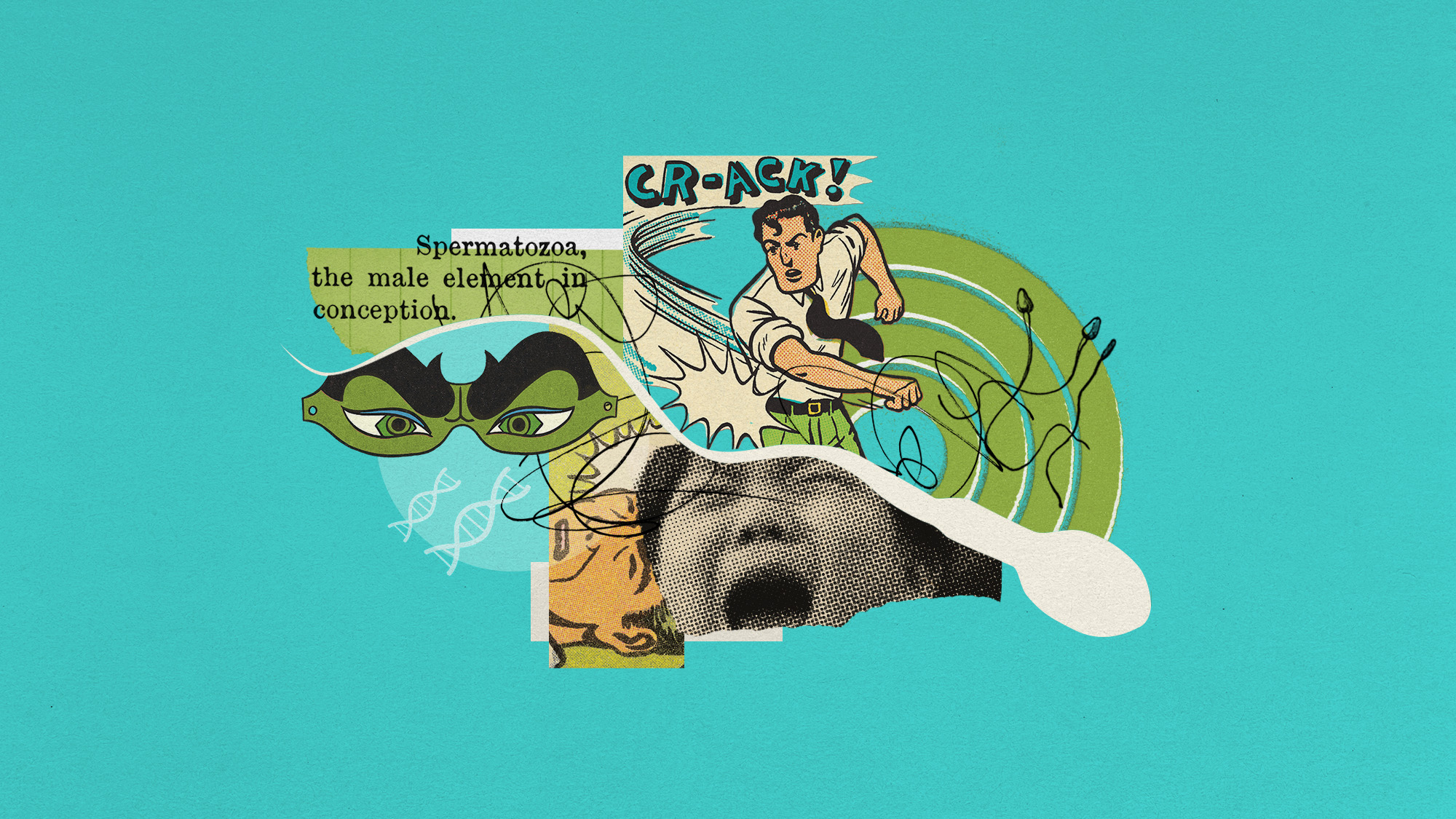Sperm cells can carry past trauma in their DNA
Your parent's past may be affecting your future


A free daily email with the biggest news stories of the day – and the best features from TheWeek.com
You are now subscribed
Your newsletter sign-up was successful
Generational wounds may live in our genes. New research suggests that childhood trauma leads to a difference in the epigenetics of a sperm cell, which can impact a child's development and also be passed on by that child via epigenetic inheritance. According to the new study, a parent's particular experiences and behaviors may have a larger effect on future generations than previously assumed.
The past is present
The study, published in the journal Molecular Psychiatry, specifically looked at the epigenetics of sperm cells from people who were exposed to high levels of stress during childhood. "Understanding inheritance through genes and DNA has been one of the most crucial elements of our understanding of biology," Dr. Jetro Tuulari, an associate professor in the Department of Clinical Medicine at the University of Turku in Finland and the author of the study, said to Live Science. "We are now doing research that questions whether or not we have a complete picture."
Epigenetics is the study of how cells control gene activity without changing the DNA sequence but instead altering "which genes can be switched on," said Live Science. Researchers here looked at two epigenetic markers: DNA methylation and small noncoding RNA. The findings showed a "different epigenetic profile compared with the sperm from men who reported less trauma," with the pattern holding "even after the researchers checked if the differences could be attributed to other factors, such as drinking or smoking behaviors." These results "provide further evidence that early life stress influences the paternal germline epigenome and supports a possible effect in modulating the development of the central nervous system of the next generation," the study said.
The Week
Escape your echo chamber. Get the facts behind the news, plus analysis from multiple perspectives.

Sign up for The Week's Free Newsletters
From our morning news briefing to a weekly Good News Newsletter, get the best of The Week delivered directly to your inbox.
From our morning news briefing to a weekly Good News Newsletter, get the best of The Week delivered directly to your inbox.
Generation after generation
While the study found epigenetic changes in the sperm cells of those who experienced distress as children, "the inheritance of these findings has not yet been proven, so further research is needed," University of Turku Professor Emeritus Hasse Karlsson, who worked on the study, said in a press release. "Next, we want to study childhood maltreatment, epigenome of sperm, and offspring characteristics together," added Tuulari in the press release. "Demonstrating epigenetic inheritance in humans would rewrite the rules of inheritance, which highlights the need for further research."
Scientists have long been interested in how the behavior and experiences of parents genetically affect their children, especially when it comes to the sperm cell. "There must be a huge component of the pathogenesis which is not simply explained by genetic predisposition," Raffaele Teperino, a physiologist and pharmacologist at Helmholtz Munich, said to The Scientist. For example, a 2024 study found that paternal diet and weight can affect their offspring's metabolic health — even if the offspring has a healthy diet.
A free daily email with the biggest news stories of the day – and the best features from TheWeek.com
Devika Rao has worked as a staff writer at The Week since 2022, covering science, the environment, climate and business. She previously worked as a policy associate for a nonprofit organization advocating for environmental action from a business perspective.
-
 Political cartoons for February 15
Political cartoons for February 15Cartoons Sunday's political cartoons include political ventriloquism, Europe in the middle, and more
-
 The broken water companies failing England and Wales
The broken water companies failing England and WalesExplainer With rising bills, deteriorating river health and a lack of investment, regulators face an uphill battle to stabilise the industry
-
 A thrilling foodie city in northern Japan
A thrilling foodie city in northern JapanThe Week Recommends The food scene here is ‘unspoilt’ and ‘fun’
-
 Scientists are worried about amoebas
Scientists are worried about amoebasUnder the radar Small and very mighty
-
 Metal-based compounds may be the future of antibiotics
Metal-based compounds may be the future of antibioticsUnder the radar Robots can help develop them
-
 A Nipah virus outbreak in India has brought back Covid-era surveillance
A Nipah virus outbreak in India has brought back Covid-era surveillanceUnder the radar The disease can spread through animals and humans
-
 Deaths of children under 5 have gone up for the first time this century
Deaths of children under 5 have gone up for the first time this centuryUnder the radar Poor funding is the culprit
-
 A fentanyl vaccine may be on the horizon
A fentanyl vaccine may be on the horizonUnder the radar Taking a serious jab at the opioid epidemic
-
 More adults are dying before the age of 65
More adults are dying before the age of 65Under the radar The phenomenon is more pronounced in Black and low-income populations
-
 Scientists have developed a broad-spectrum snake bite antivenom
Scientists have developed a broad-spectrum snake bite antivenomUnder the radar It works on some of the most dangerous species
-
 Covid-19 mRNA vaccines could help fight cancer
Covid-19 mRNA vaccines could help fight cancerUnder the radar They boost the immune system
